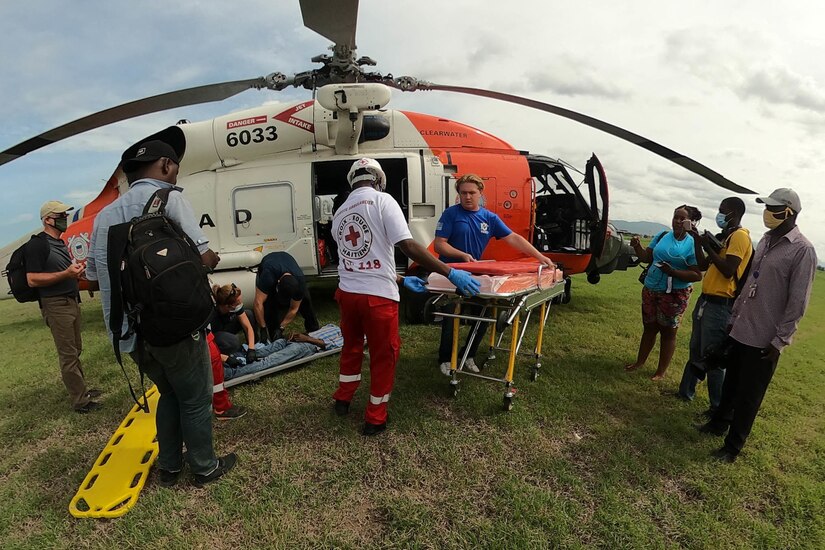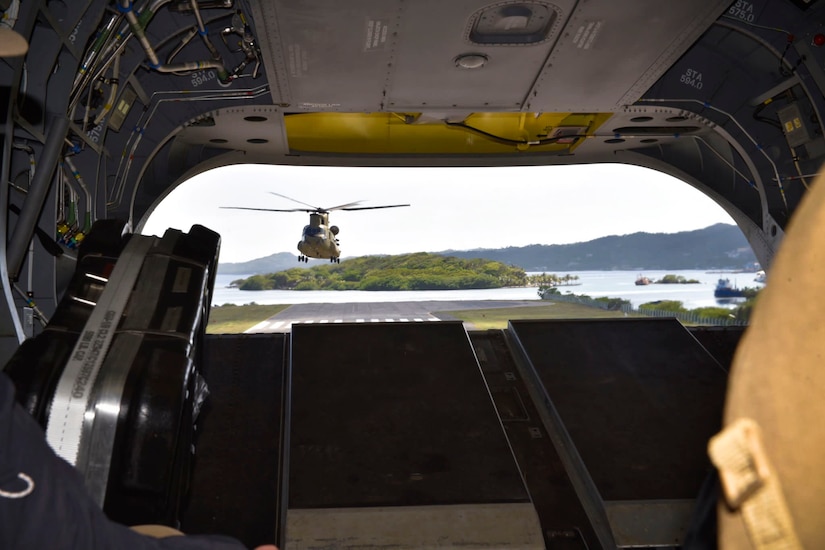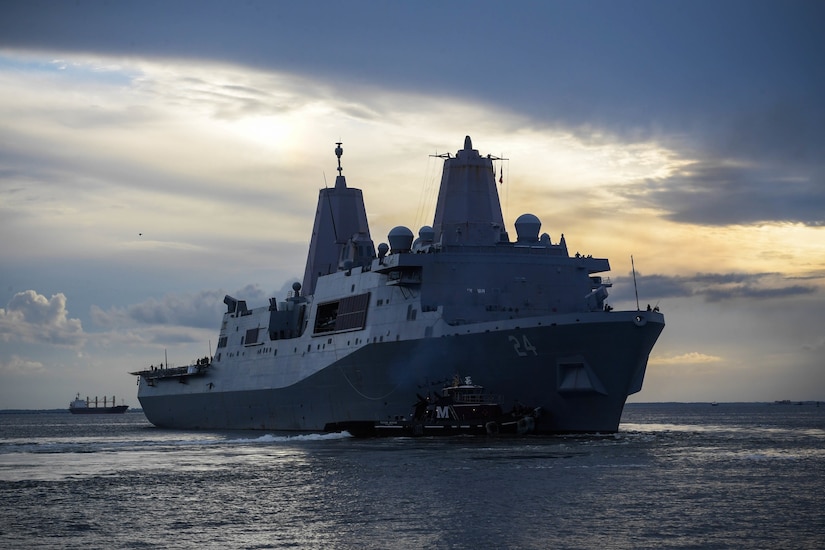Speed is essential in saving lives during a disaster like the Haitian earthquake, and U.S. Southern Command is in the business of saving lives, Navy Adm. Craig Faller, the commander of U.S. Southern Command said in an interview Tuesday night.
The 7.2 on the Richter scale earthquake struck the southeastern area of Haiti on Saturday morning. Within 24-hours U.S. Southern Command had teams on the ground assessing damage and saving lives. The effort has continued non-stop – even as Tropical Storm Grace struck the affected area yesterday.

"From the onset, we knew this was a massive earthquake, with potential for significant loss of life," Faller said. On Wednesday, Haitian officials put the death toll at 1,941 with thousands of people still missing. More than 10,000 people were injured and more than 60,000 homes were destroyed. Many of the missing may be trapped in these collapsed homes.
The U.S. Agency for International Development was named the lead Federal agency for the relief effort and U.S. Southern Command is in support, and the two entities immediately linked their command and control capabilities.
Assessing the extent of the damage was key to getting relief and capabilities to the island nation. In less than 24 hours, "we were able to get Navy (intelligence, surveillance, reconnaissance craft) flying off the USNS Burlington," the admiral said. Navy P-8s also scanned the affected areas and key leaders were able to look at the extent of the damage.
An assessment team from Southcom arrived in Haiti immediately after and were able to look at damage to roads, bridges, airports, piers and airstrips. The team was able to direct U.S. Coast Guard helicopters to usable airstrips, and those crews immediately began airlifting casualties out of the area to hospital in Port au Prince – an area that thankfully was not affected by the quake.

More U.S. assets are flowing to the effort. Helicopters from the Puerto Rican National Guard and the U.S. Army are heading to the area. The USS Arlington – an amphibious landing dock ship with helicopters – is steaming to the site. The Navy ship has a surgical team aboard. The choppers have been instrumental in airlifting the Fairfax County, Virginia, search and rescue team to the affected areas.
"A lot more search and rescue remains," Faller said. "So that storm impacted our ability to get out and about, but there's been not as much flooding as we expected. But that Tropical Storm did drench the island yesterday and into today."
The command is working closely with international partners as well. "There's a Colombian search and rescue team that has been on the ground since yesterday," he said. "They're fully being employed, and no one had asked for that. That's just who the Colombians are."
Jamaica is sending a search and rescue team aboard a United Kingdom support ship. The team will off-load and the ship will remain off the coast ready to render any assistance. The French are sending a frigate with aviation capabilities. "The Dominican Republic has been tremendous," he said. "They flew in the initial relief supplies and they've been involved in search and rescue throughout."
Faller said the support he has gotten from the Pentagon has been excellent. He said that he has been given every capability he has asked for, and even with all that is going on in Afghanistan, Secretary of Defense Lloyd J. Austin III and Army Gen. Mark Milley, the chairman of the Joint Chiefs of Staff, have been in daily contact with him.
A significant amount of assistance via helicopter is arriving in Haiti now, and – except at the height of the tropical storm – they have been operating continuously. Faller also has Southcom C-130 aircraft and those workhorses have been constantly moving relief supplies to Haiti.

The command is also working with non-governmental agencies to get supplies and medical capabilities to the affected area. "Our first mission [today] will be a hospital, through one of the NGOs that will use heavy-lift helicopters to move out into the affected area," Faller said.
All of this speed is the result of Southcom working with other agency partners and the international community as a matter of course. Faller said the agencies – such as U.S. Agency for International Development – are an integral part of the Southcom team, with offices in the command and attending operation briefing alongside their military counterparts. The same is true for allies and the ease with which the command works with Colombia, Canada, the Netherlands, France, the UK, the Dominican Republic and more is the result of years of working and exercising together, Faller said.
Moving forward, the command will work with all to continue to save lives. Haiti has been under considerable stress from the assassination of its president to the earthquake to Tropical Storm Grace to another tropical storm taking aim. "I hope the message in Haiti is the U.S. and international partners are here to help them get on their feet and move forward," Faller said.








No comments:
Post a Comment